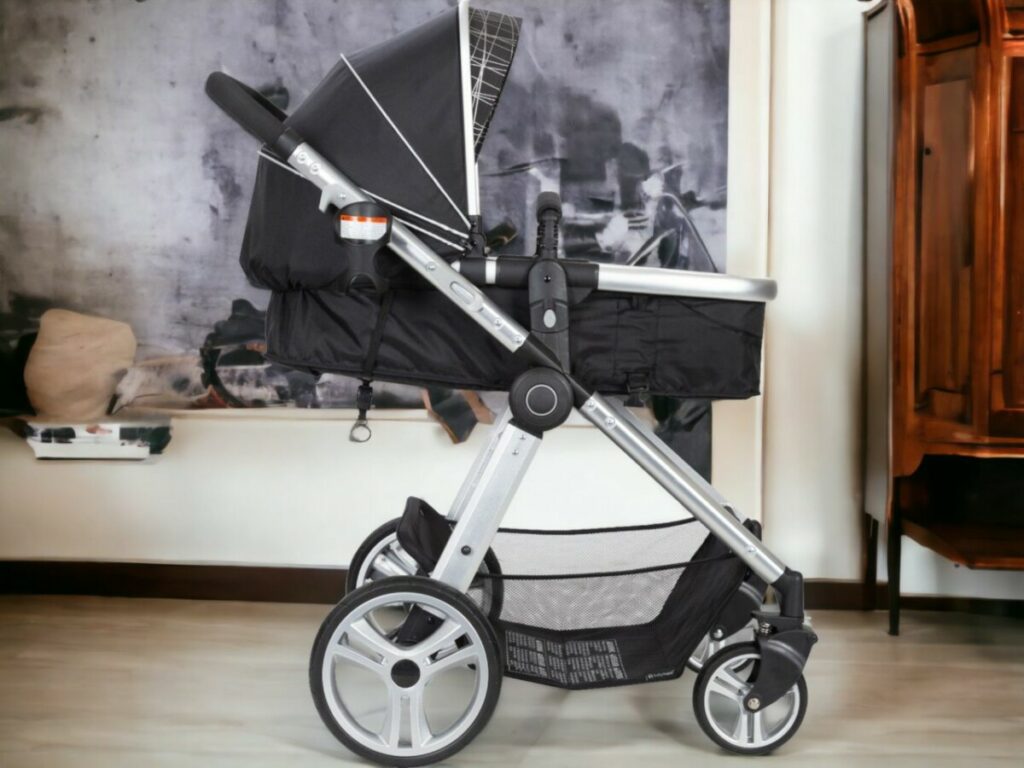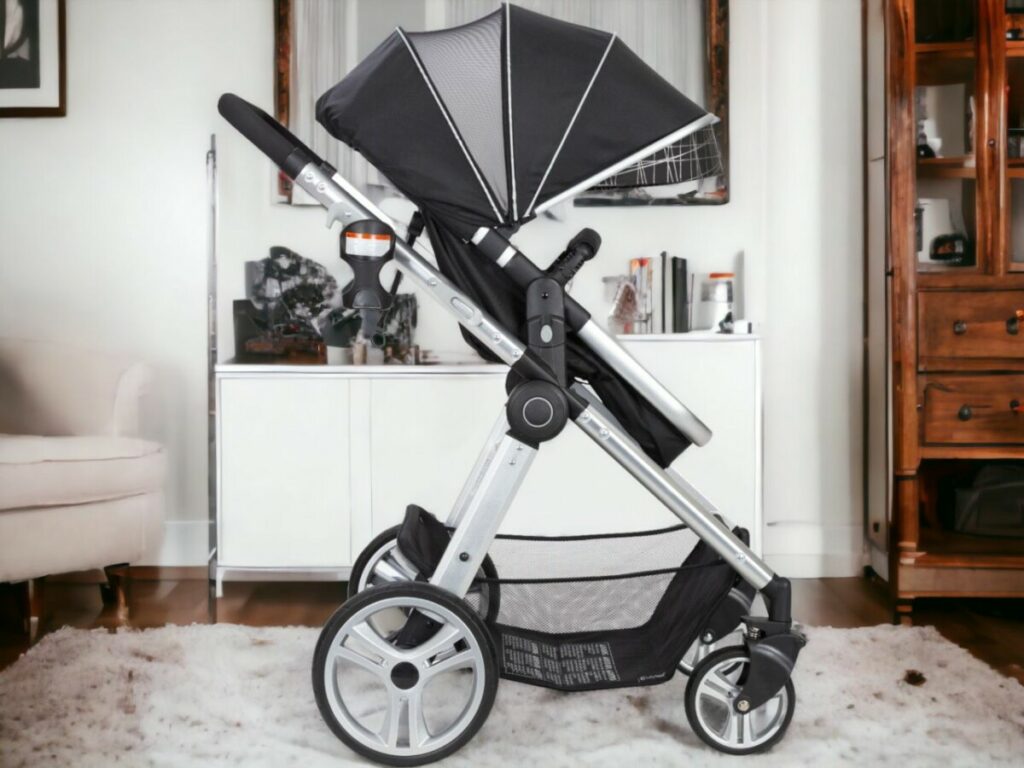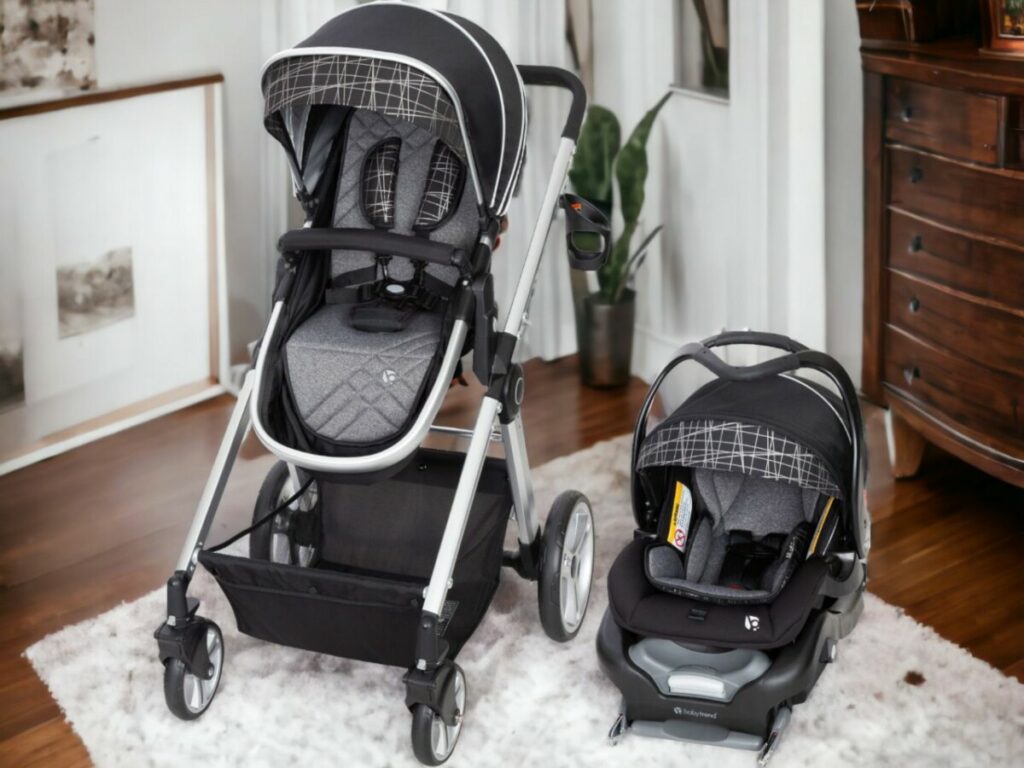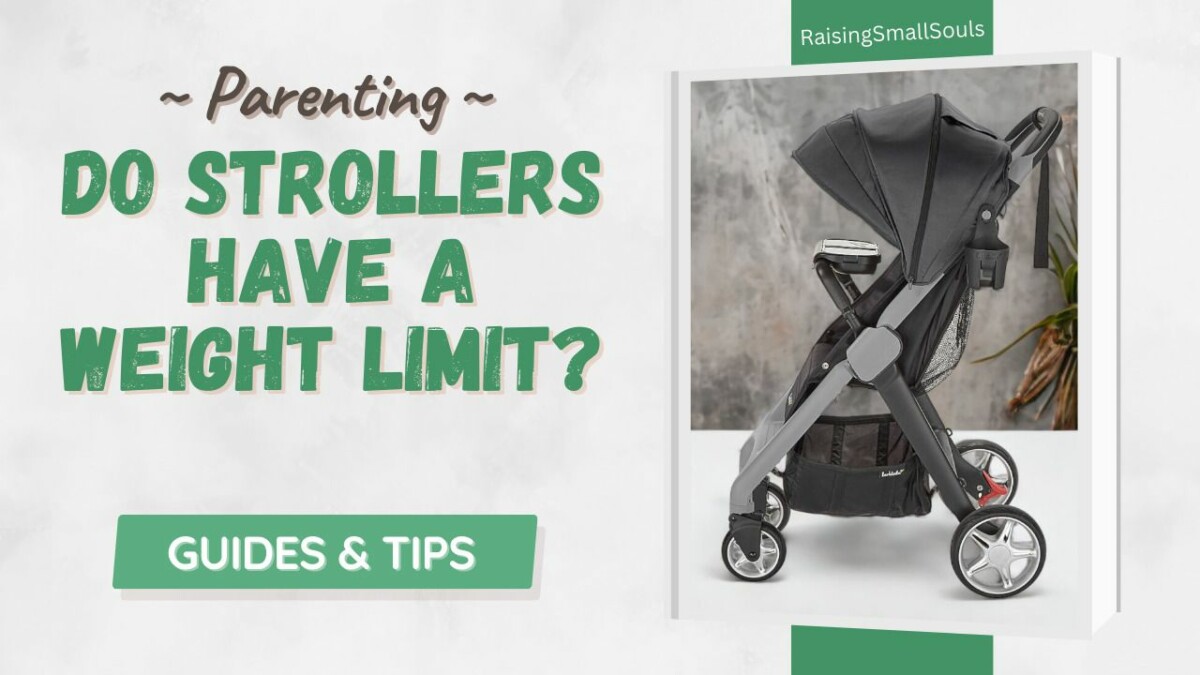Getting ready for a fun day at the zoo and suddenly you’re hit with a question: ‘Can my stroller bear the weight of my two toddlers?’ Don’t stress, you’re not the only one wondering, ‘Do strollers even have a weight limit?’
In this piece, we’re diving into this mystery, checking out signs of overuse on your stroller, and tossing out some handy alternatives. Hang tight, as we dig into this crucial question to make your day out a whole lot smoother.
Do Strollers Come with Weight Limits?
Yes, indeed. Every stroller model has its own weight limit set by the manufacturer. So, always check the user’s manual or consult the manufacturer to find out what’s the max cargo your stroller can handle.
Alright, let’s break this down. Those numbers you see on your kid’s stroller – they’re not just there for decoration. They’re actually super important for a couple of reasons. First off, they’re a guide to how much weight the stroller can handle before it starts acting up – think wheels not working right, or the whole thing becoming unstable. Not a good look, right?
Plus, they’re also about keeping your little one comfortable and safe. When it comes to heavy kiddos, sticking to these weight limits is a must. If your child is getting close to, or has already passed that weight limit, it may be time to explore some other options.
When picking out a new stroller, there’s a few things you’ll want to keep in mind. Quality is key, nobody wants a flimsy stroller. Also, pay attention to its weight limit. And of course, you gotta make sure your kid can sit in it comfortably.
At the end of the day, your child’s safety and comfort should be the top priority. Always.
Personal Experiences: Going Beyond the Weight Limit

Hey there! It seems like a bunch of you guys have been really testing the limits, pushing past those weight restrictions set by the stroller manufacturers. Sure, your stroller might still seem solid and dependable, but let’s not forget there are some safety issues and potential long-term consequences that we definitely need to talk about.
- Safety First, Always: When you overload that stroller, you’re messing with its balance and structure, which could lead to not-so-fun surprises. Do yourself a favor and check that stroller regularly for any signs of damage.
- Comfort Zone: Overloading the stroller could make the ride less than pleasant for your little one. We want them to be comfy, not squashed, so keep an eye out for any signs of discomfort.
- Life Expectancy: Keep overloading that stroller and you might find it doesn’t last as long as you’d hoped. Over time, it’ll wear out quicker and you’ll be shopping for a new one sooner than you think.
The Importance of Comfort When Exceeding Stroller Weight Limits

Overloading your kid’s stroller might sound like no big deal, but trust me, you’re playing with fire. Not only are you messing with the stroller’s lifespan, but you’re also cramping your little one’s style; comfort is super important, you know.
Child safety is non-negotiable, and pushing the weight limits of a stroller can seriously throw off its balance, making it a real pain to navigate. Picture this: your kiddo bouncing around like popcorn on a bumpy ride – not cool, right?
And let’s not forget about the stroller itself. Constantly overloading it’s like putting it on a fast track to the junkyard. The strain can seriously weaken the frame and wheels, and before you know it, you’re dealing with an old, worn-out stroller.
Detecting Signs of Wear and Stress on Your Stroller

Okay, let’s talk about how to spot if your stroller is starting to give up the ghost. Keeping tabs on the stroller’s condition is key, not just to get the most bang for your buck, but more importantly, to keep your kiddo safe and sound.
- First off, Wiggly Wheels: If the wheels on your stroller have started to get a bit wiggly or they’re not rolling as smooth as they used to, that’s a red flag right there.
- Next up, Tattered Textiles: Keep an eye on the fabric of the stroller. If you’re starting to see some fraying or even some tears, it’s time to take notice.
- Thirdly, Unsteady Joints: Give some focus on any joints that just don’t feel as tight or stable as they should.
Let’s get real, your child’s safety is the priority here. If you’re starting to spot these issues, it might be time to start shopping around for a new stroller. You’ve got to ensure that the ride is safe, cozy, and fun for your little tyke.
Alternatives and Practical Solutions When Dealing With Stroller Weight Limits
When it comes to dealing with the weight limits of strollers, there’s more than one way to skin a cat. If your little one isn’t so little anymore and can handle their own on foot, you might want to dive into the great walking versus stroller discussion. Sure, walking gets them moving and helps foster a sense of independence, but a stroller can be a lifesaver when those tiny legs need a break.
One pretty sweet middle ground is a stroller board. This nifty little gadget hooks onto your stroller, letting your older kiddo hitch a ride while you do the pushing. Now, you could also go with a double stroller, but these bad boys can be a bit on the hefty side, not to mention they’ll lighten your wallet pretty quick. Still, they do provide a seat for two, so there’s that.
Stroller boards, on the other hand, are a bit more compact and won’t put quite as much of a dent in your budget. But let’s be real, double strollers do take the cake when it comes to comfort. At the end of the day, the best choice for you is going to depend on a few different things. Think about how old your kids are, what your budget looks like, and what kind of lifestyle you lead.
Plus, always remember – you’re the parent, so you get the final say.
Navigating the Stroller Saga – The Weight Limit and Beyond
As a newbie parent or perhaps, the parent-to-be, there’s a treasure trove of info you need to be packing into your brain. Amy, my friend who just had her baby boy, sent me down this rabbit hole and it got me thinking. If you’re anything like us, you’re probably wondering about the same thing.
Anyway, stumble down this rabbit hole with me for a sec. Because it’s not just about the weight limit right? Like sooner or later, you gotta ask yourself, do strollers get stolen at Disney? Laugh all you want, but I’ve heard some wicked stories. I guess in some parts of the world, a high-end stroller is deemed worthy of a five-finger discount. Crazy, right?
And then, when you’re finally getting ready for the moment of truth, you can’t help but fret about seemingly mundane things. One trend I’ve noticed is the confusion about whether you need to bring a stroller to the hospital or not. Trust me, when you’re about to welcome a new life, the last thing you need is more confusion and guesswork.
Now, here’s something even more bonkers: the debate never ends, even when you’re planning to have your second kiddo. Especially when you’re having your second baby under two years of age. It’s like you’re tossed into a whole new world of questions and uncertainty. Like, do you need a double stroller for 2 under 2? It’s just wild.
So, strollers. Not as straightforward as one might think, eh? The weight limits are just the tip of the iceberg. Dive deeper, there’s a lot more going on under the surface. So, parents and parents-to-be, heed my call. Tap into the collective wisdom. Learn from others’ experiences. With so much to ponder, why not start here and now? Get ready to conquer the stroller saga!

I am a stay-at-home mom of a wonderful son. I write on this blog as a hobby to help fellow mothers in their parental journey 🙂

